2024 February 13
2024 February 13
At last, after navigating through the difficulties of installing a new computer system and transferring files from one to the other, I believe Invertebrate Alert is now almost back in business. The one thing still remaining to do is to update the Index. I haven’t managed to update that since February 5 – I am still working on it (writes Jeremy Tatum).
Ian Cooper sends a photograph of a springtail from View Royal, Feb 07 2024, and some recent spiders. We thank Dr Robb Bennett for help with identifying the spiders.
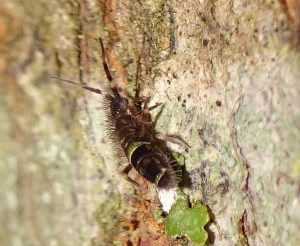 Springtail Orchesella cincta (Coll.: Orchesellidae) Ian Cooper
Springtail Orchesella cincta (Coll.: Orchesellidae) Ian Cooper
Of the first two spiders below, Dr Bennett writes: They are most likely a conspecific male and female pair. The female is definitely a Neriene – enough of the epigyne is visible in the side view to confirm the genus. Probably N. digna but I’m not positive without being able to examine the beasts. So, “Neriene sp.”
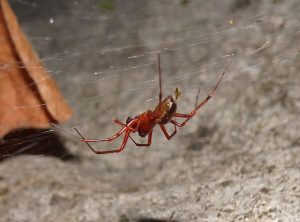 Male Neriene sp. (Ara.: Linyphiidae – Linyphiinae) Ian Cooper
Male Neriene sp. (Ara.: Linyphiidae – Linyphiinae) Ian Cooper
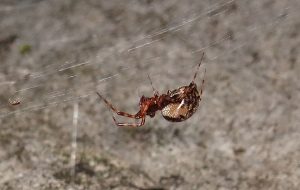
Female Neriene sp. (Ara.: Linyphiidae – Linyphiinae) Ian Cooper
Next – another linyphiine, probably again Neriene:
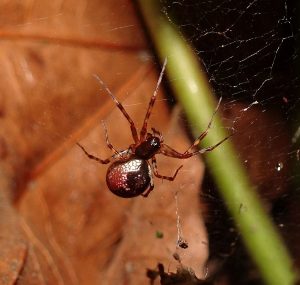
Probably Neriene (Ara.: Linyphiidae – Linyphiinae) Ian Cooper
Of the last one, below, Ian writes: I recognized this spider as soon as I saw it, but was not able to get a good side photo of it because it retreated to a crevice at the back of the hollow it was set up in when my camera’s flash went off. I’ll likely have further opportunities to photograph it in future, as these spiders tend to stay put.
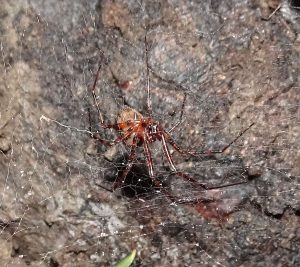 Pimoa altioculata (Ara: Pimoidae) Ian Cooper
Pimoa altioculata (Ara: Pimoidae) Ian Cooper
More tomorrow…
